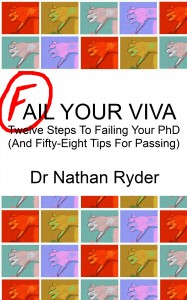Emerging Discussions
It’s possible to overthink about viva questions. Yes, you need to prepare for them; no, you can’t prepare for every question or anticipate everything that might come up.
Your examiners might not know which direction the conversation will flow either. They have questions, but not a script; they can’t see all possible twists and turns that you might take together.
The discussions will emerge from the questions they ask, and you can’t know them in advance…
…well, not exactly.
Their questions are a response to what you’ve set out in your thesis. This is the end point of the questions you’ve been asking yourself all through your PhD. So a good starting point to be ready for the emerging discussions in your viva is to return to your original questions.
Reflect on those, then think about how you might approach the viva’s questions.
